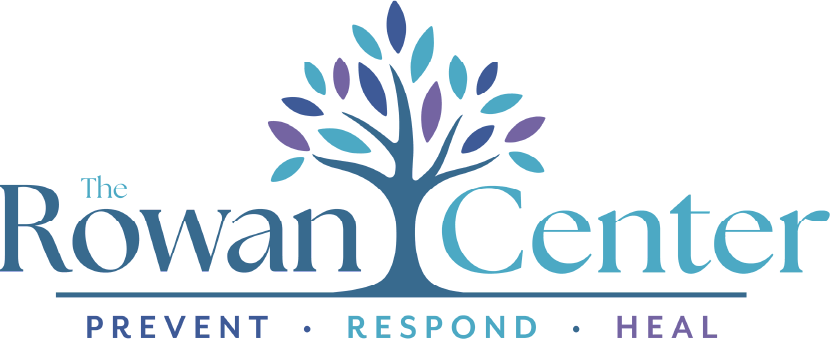Q (Melissa): How did you come to volunteering as an advocate at The Rowan Center?
A (Hillary): I was actively looking for something that was hands-on volunteering—I have served on a lot of boards and committees in the past, and I ran into (TRC Board Chair) Sharon Epps and I had never heard of TRC. She shared that she was a Victim Advocate, and I was immediately interested. I did the online training last May, and started taking hotline shifts in July.
Q: What was it like getting your first call?
A: I was actually at lunch with a friend when I got my first call. I was so nervous because you don’t want to say the wrong thing, and I was trying to think of my training, but I think when I take a call, I ask them how I can help them. And with every caller I have had they are eager to talk because they have finally connected to someone, and each person calls the hotline coming from a different place. Each call has been completely different, but they are all almost relieved to have someone to listen and to explain what The Rowan Center provides. I think for me, and I am totally new at this and I’m not an expert or a counselor even, but I just take a mom approach, and I listen and educate about what the resources are.
For hospital calls, I’ve had two and both were very different. In both cases the victims were so happy to learn that The Rowan Center was there.
Q: You take a lot of shifts, when you can. Is covering shifts is a disruption to your schedule?
A: I kind of pull it into my daily life, and I do take more shifts than the required amount because I look at my week, and I have my phone with me all the time anyway, so I have worked it into my schedule without any disruption. It was funny because once I was in a workout class and my phone rang and I had forgotten I was on the hotline. I just stepped out, took the call, and rejoined class when it was over. It was fine.
Q: Do you have a self-care routine or practice to help yourself recover after receiving someone’s crisis call?
A: I write in my journal; often I find it hard to take this content in, these stories from people, and not sit down and talk to someone about it. So my journal helps me express it and keeps it private. It’s been very helpful. And I always do think about the person after, and I hope they follow through with the information I give them.
Q: Is it difficult helping someone though a crisis call?
A: Some of the experiences I have had have been a little bit rattling, and I think my expectation from the training was that I would probably see some date-rape scenarios from the area colleges, unwanted sexual advances, that’s what I thought. And I have learned so much, that there’s so much that happens in this area and there has been such a variety of genders, backgrounds, and situations that people are in—no case is the same. And sexual violence affects so many people. Every interaction I’ve had, they have all been completely different. No two have been alike. It’s hard to watch someone in pain, and I’ve been very impressed with the people I’ve met at the hospitals and police stations. At the hospital, there is a SA nurse, and it’s comforting that they know what to do, and the police were all very gentle and supportive with the victims. It is reassuring to see the victims treated well. The hardest part is hoping that they take advantage of the resources and follow up. Because with some of the calls I can tell that they finally picked up the phone after a lot of grief and anxiety, and dealing with a terrible situation, and I hope that once they made the call, maybe the hardest thing they’ve done, they continue forward.
The common thread is that every person has been so grateful for the information, for the resources.
Q: Would you recommend volunteering to others, if they are interested in a hands-on commitment?
A: I do! I talk about it with my friends and have recommended it to friends, and I’m sure it isn’t for everyone, but it does feel good to help callers. I hope that I’m helping someone. I would say that it’s not as time-consuming as you might think. And it really can fit into your day. Sometimes a week can go by and you don’t get a call; people can make it fit into their lives.
Q: Well, you also provide relief for our staff, and you definitely help our work. You have an enormous impact on people and the organization as a whole. We are so grateful to you that you’ve chosen this journey, chosen to sit with victims when they need it. Thank you so much, Hillary. And thanks for sharing with us for this spotlight. I am sure you’ll inspire others to think about volunteering, too.
To Volunteer, please contact Marsha Placide at mplacide@therowancenter.org
